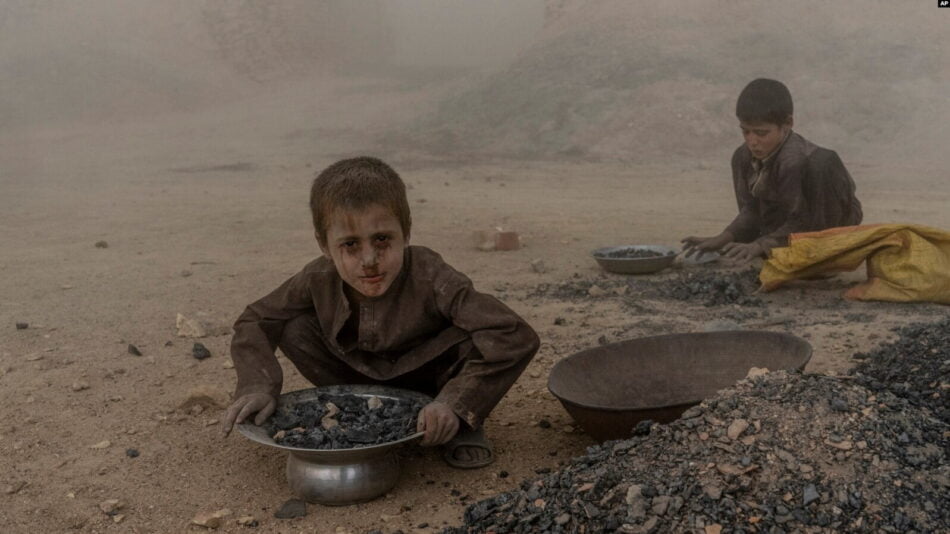In Kabul’s bustling yet worn-down streets, Mira Jan’s story, a displaced resident from Chak district in Maidan Wardak province, resonates with the plight of many Afghans under the current economic crisis. As he shares it, his narrative reflects the harsh reality of life in Afghanistan post-August 2021.
Mira Jan, who moved to Kabul three years ago with his family to escape a severe drought, found work in construction. However, the cold winter has halted this work, severing his primary income source. “I have a family of seven. My children are small. It’s been a week since one of my daughters has severe pneumonia,” he reveals. Mira Jan describes a life of hardship, struggling to afford heating or medical care, with his family often going to sleep hungry.
This individual tragedy directly reflects the broader crisis detailed in the United Nations Development Programmer’s (UNDP) January 2024 report. According to the UNDP, approximately 85% of Afghans live on less than one dollar daily, a situation that has markedly worsened since August 2021. Women, in particular, are severely affected due to restrictions on education and employment.
Approximately 85% of Afghans live on less than one dollar daily, a situation that has markedly worsened since August 2021.
UNDP
In response to these challenges, the UNDP claims to have pivoted its efforts in Afghanistan through various initiatives. One such program, ABADEI, reportedly focuses on women-owned businesses, job creation, and basic social services. Following the recent earthquake in Herat, the UNDP asserts that it has engaged in crisis response and community-led recovery, focusing on rebuilding infrastructure and supporting women-led businesses.
Afghanistan’s ruling Taliban government has not officially responded to the UNDP’s recent report. They have usually attributed economic hardships to international sanctions imposed after their return to power. The Taliban argues that these sanctions have damaged the private sector, including banking, leading to widespread unemployment and economic decline.
Contrastingly, opponents of the Taliban argue that the group’s policies are primarily responsible for the economic crisis. They suggest that the Taliban’s violations of human rights and failure to meet international obligations justify the international sanctions.
As Mira Jan’s story unfolds, it becomes a microcosm of Afghanistan’s broader challenges. His daily struggle for survival, mirrored by millions of others, underscores the urgent need for a multifaceted approach to address the country’s complex socio-economic issues, reflecting the stark findings of the UNDP and the contrasting views on Afghanistan’s economic woes.





